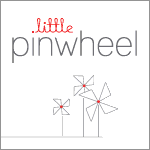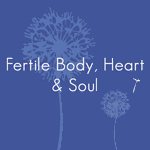
So many have requested me to talk about depression in this entry. When I started thinking about it, I thought it would be useful to talk about not just depression but post natal depression, since from a TCM point, they are not dissimilar, with the exception of when the depression occurs.
Post natal depression can usually be linked back to a mothers birthing experience, where pathologically she lost too much blood or was deficient prior to the birth. Depression not linked to pregnancy is not too dissimilar in that it is a result of organic imbalances in the body, most commonly the heart. Now from a western sense this does not generally mean there is anything physically wrong with the heart as such, but more the influence and lack of vital substances, blood and qi may be having on the heart.
The heart is very reliant on receiving adequate blood (both TCM and Western physiology wouldn't disagree). From a TCM perspective, the heart houses the mind and governs blood. If the heart becomes deficient, and there isn't adequate blood supplied to it, the person will begin to feel depressed, anxious most commonly also experiencing insomnia and fatigue. A range of other symptoms will also become evident, including lack of motivation, loss in libido and general feeling of guilt. When at this point, a person continues to push on through the condition can worsen, and since each organ is reliant on the next, a host of other symptoms will arrive as a result of other organ contribution (or lack of). This is where TCM excels because at this point, different pathologies will present, and if each individual isn't treated in a specific manner, the patients recovery may be slow or absent. Most commonly, no two cases of depression are the same simply because no two people are the same. Treatment needs to be individualised otherwise it will not be effective.
Outside of treatment, a patient who is experiencing any type of depression will benefit greatly by making healthy changes to their lifestyle. Exercise is extremely important as it assists in moving through 'build up' of hormones which may contribute to emotional problems. Adding an Omega 3 to the diet is also equally important. Multiple studies have shown that a diet lacking in Omega 3 will have greater incidence of depression. Not any Omega 3 will do however, be sure it is good in quality; not derived from farmed fish. A good Omega 3 will cost more than others - don't waste your time with bad quality supplements. Finally, Eating a diet rich in colourful and green leafy veggies is in my opinion necessary for all individuals to receive adequate amounts of vitamins and minerals. This is necessary to keep our bodies in working order. If the body isn't getting all this, it cannot be expected to work properly.
We are lucky enough in the clinic to be able to support women not only through their pregnancies but also provide ongoing care. This allows us to be able to prevent postnatal depression, especially when there is a history of emotional problems as well as treat depression in general. With the use of careful diagnosis, acupuncture, herbal medicine and most recently wholistic mentoring we are able to guide women through these periods, ensuring they can go on to enjoy their families and most importantly be happy in their own bodies.











No comments:
Post a Comment
I thoroughly appreciate your comments, don't be shy to leave one!